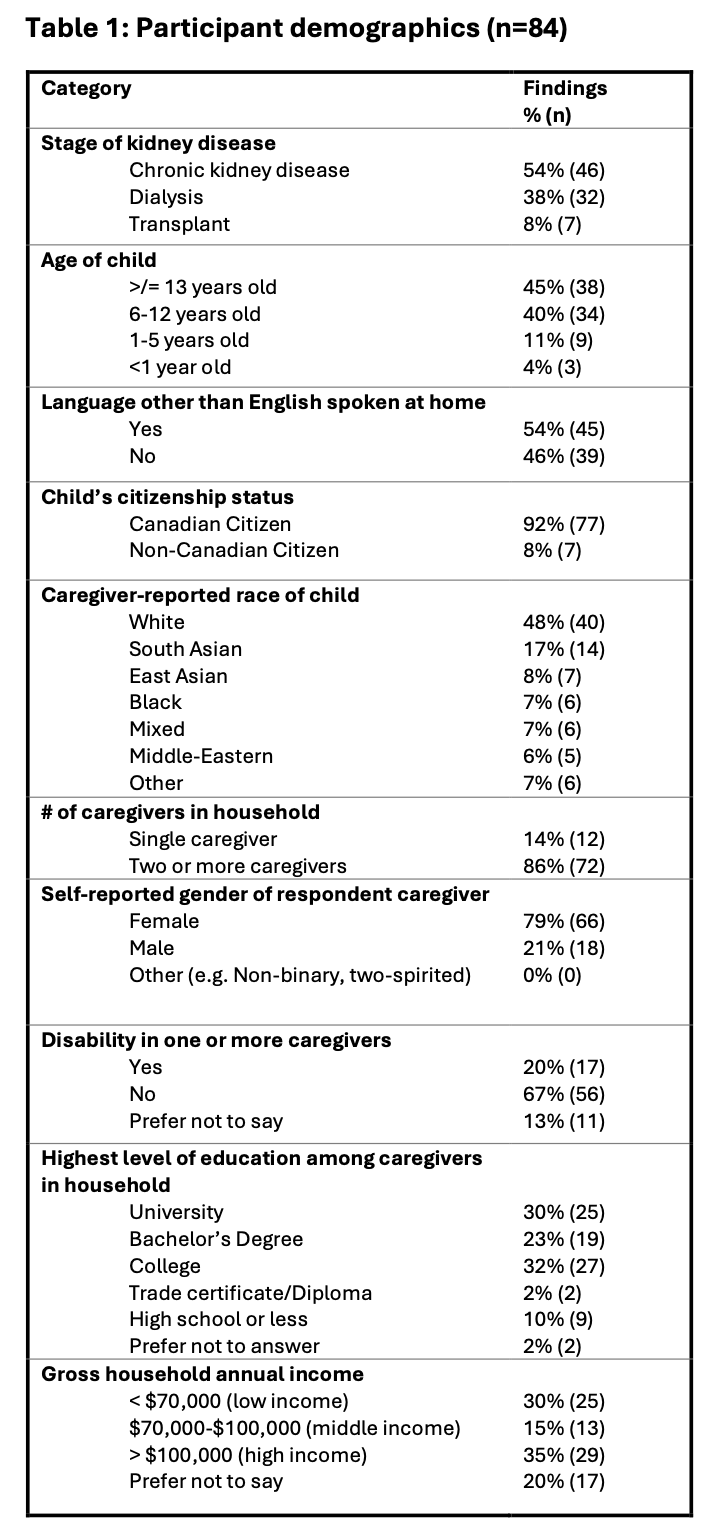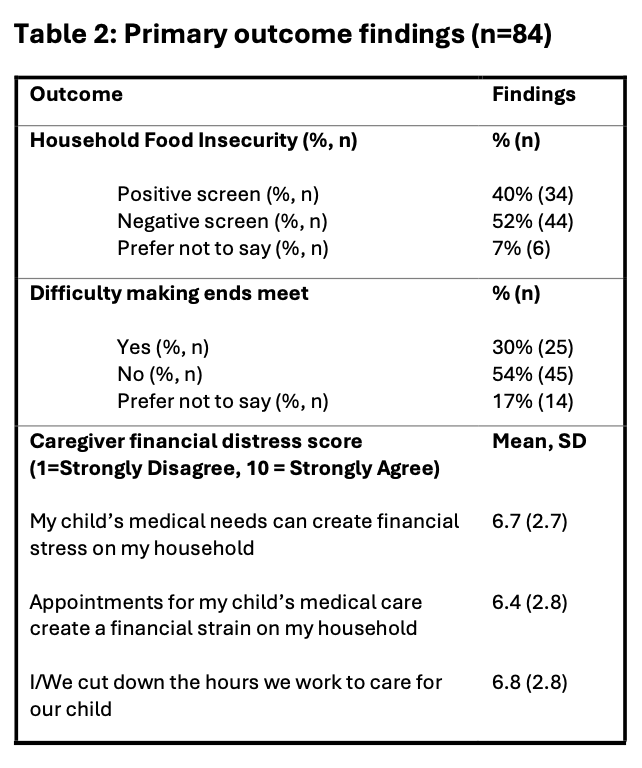Prevalence of household food insecurity and financial challenges amongst caregivers of paediatric chronic kidney disease, dialysis, and kidney transplant patients
Yasmeen Mansoor1,2,3,4, Elizabeth Dale2,3, Angela Williams2,3, Melissa Darby3, Emily Ghent3, Valentina Bruno1,3, Chia Wei Teoh1,2,3, Meta van den Heuvel1.
1Department of Paediatrics, Hospital for Sick Children, Toronto, ON, Canada; 2Transplant & Regenerative Medicine Centre, Hospital for Sick Children, Toronto, ON, Canada; 3Division of Nephrology, Hospital for Sick Children, Toronto, ON, Canada; 4Institute of Health Policy, Management, and Evaluation, University of Toronto, Toronto, ON, Canada
Introduction: Families of paediatric chronic kidney disease (CKD), dialysis, and kidney transplant patients may face an increased financial burden due to the care needs of their children. There is, however, little existing data about the prevalence of financial challenges and caregiver-perceived impact of these challenges in this patient population. The objective of our study was to measure self-reported household food insecurity, poverty, and financial stress among caregivers of children with CKD, kidney failure requiring dialysis, and kidney transplant.
Methods: We conducted a cross-sectional study with caregivers of children with CKD, kidney failure requiring dialysis, or kidney transplant at a paediatric centre serving the Greater Toronto Area in Ontario, Canada. Caregivers were approached consecutively for participation from September 2024 to June 2025 to complete an online survey. Household food insecurity was measured with the two-item Hunger Vital Sign tool. Self-reported poverty was assessed using the screening question from the Canadian Community Health Survey, 'Does your household ever have trouble making ends meet at the end of the month?' Caregiver-reported financial stress was measured with the Financial Impact Scale, which asks respondents to rate three statements about financial strain on the household due to their child’s healthcare needs using a Likert scale (1 is 'Strongly Disagree', 10 is 'Strongly Agree').
Results: There were 84 caregiver respondents to the survey (46 kidney transplant, 7 dialysis, and 31 CKD). The respondent cohort was distributed across race, household income, and caregiver education level, notably with 30% of families in the low-income category (Table 1). The prevalence of food insecurity was 40%. Notably, the prevalence of household food insecurity in our study population was higher than the national prevalence of food insecurity (23% in 2023). Thirty percent of caregivers reported having difficulty making ends meet at the end of the month. Caregivers reported high levels of financial stress related to their child’s medical needs (Table 2).


Conclusions: Our study identified high self-reported rates of household food insecurity, poverty, and financial distress among caregivers of paediatric CKD, dialysis, and kidney transplant patients. Given the impact of food insecurity and household financial challenges on long-term child health outcomes, targeted interventions in these areas may be critical to reduce health disparities in paediatric kidney disease.
This project was supported through funding from the Transplant and Regenerative Medicine Centre Clinical Fellowship, and a grant from the Department of Paediatrics, the Hospital for Sick Children..
[1] Food insecurity
[2] Poverty
[3] Social determinants of health
[4] Financial difficulties
[5] Kidney transplant
[6] Chronic kidney disease
[7] Equity